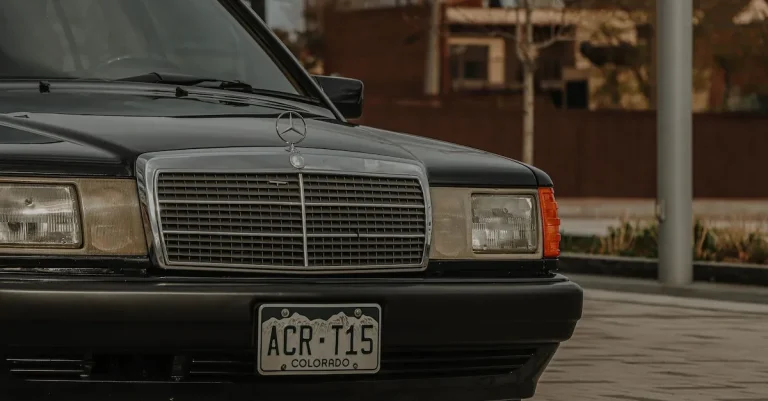Are Cars Cheaper In Texas? Examining Vehicle Costs In The Lone Star State
Texas is renowned for its wide-open spaces, cowboy culture, and southern hospitality. But how does it stack up when it comes to the cost of buying and owning a vehicle? With no state income tax and a low cost of living, many assume everything is bigger and better in Texas – including potential savings on cars.
If you’re short on time, here’s a quick answer to your question: Yes, cars tend to be cheaper in Texas compared to the national average due to lower taxes, fees, and insurance costs. However, savings can vary by city and individual factors.
Key Factors That Influence Car Costs in Texas
When it comes to buying a car, the cost is an important consideration for many people. In Texas, there are several key factors that can influence the overall cost of owning a vehicle. Understanding these factors can help you make an informed decision and potentially save money in the long run.
Sales Taxes and Fees
One of the main factors that can affect the cost of buying a car in Texas is the sales tax and fees associated with the purchase. Texas has a state sales tax rate of 6.25%, which is applied to the total purchase price of the vehicle.
Additionally, there may be additional fees such as registration fees and title transfer fees. It’s important to factor in these costs when budgeting for a new car purchase in Texas.
Insurance Rates
Another important consideration when buying a car in Texas is the cost of insurance. Insurance rates can vary depending on a variety of factors including the make and model of the car, your driving record, and your location.
It’s a good idea to shop around and compare quotes from different insurance providers to ensure you are getting the best rate. Additionally, some websites like Texas Department of Insurance provide resources and information on insurance rates and coverage options in the state.
Fuel Costs
Fuel costs are another factor to consider when evaluating the overall cost of owning a car in Texas. The Lone Star State is known for its vast size and long driving distances, which means that fuel expenses can add up quickly.
It’s worth researching the fuel efficiency of different car models and considering the average gas prices in your area to estimate your monthly fuel expenses. Websites like GasBuddy provide real-time gas prices and can help you find the cheapest gas stations near you.
Comparing Costs
To get a better understanding of the overall cost of owning a car in Texas, it’s helpful to compare the different expenses. Below is a table comparing the average costs related to sales taxes, insurance rates, and fuel costs in Texas:
| Expense | Average Cost |
|---|---|
| Sales Taxes and Fees | $2,500 |
| Insurance Rates | $1,200 per year |
| Fuel Costs | $1,500 per year |
Keep in mind that these are just average costs and can vary depending on factors such as the type of car, your driving habits, and your location within Texas. It’s always a good idea to research and compare specific costs related to your individual circumstances before making a car purchase in the Lone Star State.
How Texas Car Prices Compare Nationally
When it comes to purchasing a car, one of the first factors that most people consider is the cost. In Texas, the Lone Star State, many individuals wonder if car prices are cheaper compared to the rest of the nation. Let’s take a closer look at how Texas car prices stack up nationally.
New Car Cost Comparison
When comparing the cost of new cars in Texas to the national average, it’s important to consider various factors. According to a recent study conducted by the Texas Department of Motor Vehicles, the average price of a new car in Texas is slightly lower than the national average.
This can be attributed to several factors, including lower taxes and fees on vehicle purchases in the state.
However, it’s important to note that the specific make and model of the car can greatly impact the price. Luxury brands and high-end vehicles may still have a higher price tag in Texas compared to other states.
Additionally, regional factors such as demand and availability can also influence the cost of new cars in Texas.
Used Vehicle Cost Comparison
When it comes to used cars, Texas is known for having a wide selection and competitive prices. According to data from popular online car marketplaces, such as cars.com and autotrader.com, the average price of used vehicles in Texas is often lower compared to the national average.
This can be attributed to several factors, including a larger inventory of used cars in Texas, which leads to more competition among sellers and ultimately lower prices. Additionally, the relatively low cost of living in many parts of the state can also contribute to lower prices for used cars.
Ongoing Ownership Costs
While the initial cost of purchasing a car is an important consideration, it’s also essential to take into account the ongoing ownership costs. These costs include factors such as fuel prices, insurance rates, and maintenance expenses.
When it comes to fuel prices, Texas consistently ranks among the states with the lowest average gas prices. This can translate to significant savings for Texas car owners, especially for those who commute long distances or frequently travel.
Insurance rates in Texas can vary depending on several factors, including the driver’s age, driving record, and the specific location within the state. However, overall, insurance rates in Texas are relatively affordable compared to some other states.
Lastly, maintenance expenses can also play a role in the overall cost of owning a car. Luckily for Texas residents, the state has a robust network of auto repair shops, which can lead to more competitive pricing and convenient service options.
Regional Variation Within Texas
When it comes to the cost of cars, Texas is a diverse state with significant regional variation. This means that the prices of vehicles can vary depending on where you are in the Lone Star State.
Urban vs. Rural Differences
One factor that contributes to the regional variation in vehicle costs is the distinction between urban and rural areas. In urban areas such as Houston, Dallas, and Austin, the demand for cars is usually higher, leading to higher prices.
On the other hand, in rural areas, where there may be less demand, prices tend to be lower. So, if you’re looking for a more affordable car, you might want to consider exploring options in rural parts of Texas.
Sales Tax Rates by County and City
Another aspect that influences vehicle costs in different regions of Texas is the sales tax rates. Sales tax rates can vary by county and city, which means that the final price you pay for a car will be affected by these tax variations.
For instance, some counties and cities may have higher sales tax rates, resulting in a higher total cost for the vehicle. It’s essential to research and compare sales tax rates in different areas to get a better understanding of the potential cost differences.
For more information on specific sales tax rates in different counties and cities in Texas, you can visit the Texas Comptroller’s website.
Insurance Cost Differentials
Insurance costs also play a significant role in the overall expenses of owning a car, and they can vary depending on the region you live in. Factors such as population density, crime rates, and accident statistics can influence insurance premiums.
As a result, you might find that insurance costs are higher in densely populated urban areas compared to rural regions.
It’s crucial to consider insurance costs when deciding on a vehicle purchase, as they can significantly impact your budget. To find the best insurance rates in your area, it’s advisable to request quotes from multiple insurance providers and compare their offers.
Understanding the regional variation within Texas is essential when considering the cost of cars. By taking into account the differences between urban and rural areas, sales tax rates by county and city, and insurance cost differentials, you can make a more informed decision about purchasing a vehicle in the Lone Star State.
Tips for Finding Cheap Cars in Texas
Buying from Private Sellers
One way to find cheap cars in Texas is to consider buying from private sellers. Private sellers often sell their vehicles for lower prices compared to dealerships. This is because they are not factoring in the costs associated with running a business and can offer more competitive prices.
Additionally, private sellers may be more willing to negotiate on the price, allowing you to potentially secure an even better deal. When buying from a private seller, it’s important to thoroughly inspect the vehicle, ask for maintenance records, and take it for a test drive to ensure it meets your requirements.
Timing Your Purchase Strategically
Timing your car purchase strategically can also help you find cheaper options in Texas. Keep an eye out for seasonal sales, holidays, and end-of-year clearance events, as dealerships often offer discounts during these periods to boost sales.
Additionally, consider purchasing a car towards the end of the month when salespeople may be more motivated to meet their quotas and are more likely to negotiate on price. By being patient and strategic with your timing, you can potentially save a significant amount of money on your car purchase.
Leveraging Online Resources
Another useful tip for finding cheap cars in Texas is to leverage online resources. There are various websites and platforms that allow you to search for used cars in your area, compare prices, and filter based on your preferences.
Websites like cars.com, autotrader.com, and cargurus.com provide a wide range of options and allow you to easily narrow down your search based on factors such as price range, make, model, and mileage.
Utilizing these online resources can save you time and effort by providing you with a comprehensive view of the available options, helping you find the best deal on your desired vehicle.
Conclusion
While cars may cost a bit less in Texas compared to other states overall, many factors influence savings. Do thorough research to find the best deals based on your city, vehicle needs, and personal financial situation.








